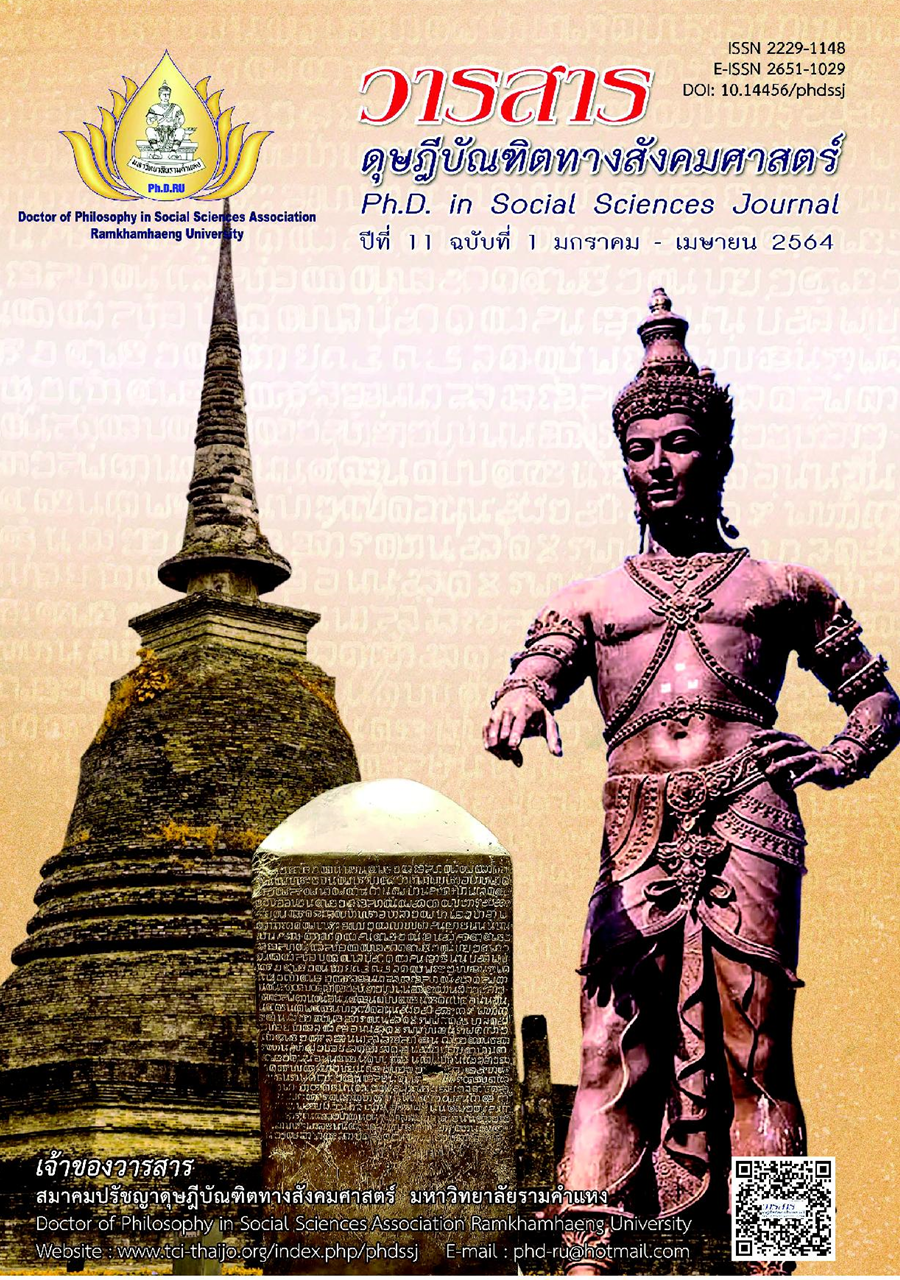Guidelines for Education Institution Administration in Thailand
Main Article Content
Abstract
This academic article aims to present the educational management guidelines for digital age administrators who have to manage the schools under the changing environments in terms of economy, society, politics, law, technology and especially for the school administrators to apply the MEPLoVE model to adapt the management paradigm efficiently.
Finding are as follow: MEPLoVE model ,the pattern for school administrators under the dynamic organizational administration, includes the followings; (1) Mapping, the planning and connecting plans (2) Execution, the process of implementing the plans (3) Participation, the contribution from all stakeholders (4) Learning organization, emphasizing the connection of educational organization to the society and (5) Verification, the follow up process by proving the capability and process under the plan and 6) Explication, the improvement and clarification the existing guidelines for integrated educational institutions . Therefore, school administrators must develop their own and their personnel’s skills in terms of technical, human and conceptual skills in order to achieve concrete organization management.
Article Details
Academic articles, research articles, and book reviews in the Ph.D. in Social Sciences Journal are author’s opinions, and not the publisher’s, and is not the responsibility of the Ph.D. in Social Sciences Journal Philosophy Association, Ramkhamhaeng University. (In the case that research is done on human, the researcher has to be trained in Ethics for Doing Research on Human Training and has to produce the evidence of the training).
References
Office of the Education Council. (2014). Basic educational institution management model. Author. [In Thai]
Office of the Education Council. (2016). (Draft) directional framework of the national education plan B. E. 2017-2031. Author. [In Thai]
Brown, D. J. (1991). Decentralization: The administrator’s guidebook to school district change. Corwin.
Budsarakul, U., Chanjarain, J., & Siririrth, W. (2015). Administration in accordance with the second decade of education reform guidelines under Chiang-Rai Primary Education Service Area Office 1. Veridian E-Journal, Silpakorn University Humanities, Social Science, and Arts, 8(1), 1340-1349. [In Thai]
Deming, W. E. (1986). Out of crisis. Centre for Advanced Engineering Study.
Drucker, P. F. (1997). The global economy and the nation-state. Foreign Affairs, 76(5), 159-171.
Fayol, H. (1937). The administrative theory in the state (translated by S. Greer), in L. Gulick & L. Urwick (Eds.), Papers on the science of administration (pp. 99-114). Columbia University Press.
Feigenbaum, A. (1991). Total quality control. McGraw-Hill.
Griffin, A. (1997). PDMA research on new product development practices. Journal of Product Innovation Management, 14(6), 429-458.
Gulick, L., & Urwick, L. (1937). Papers on the science of administration (pp. 99-114). Columbia University Press.
Katz, R. (1955). Skills of an effective administrator. Harvard Business Review, 33(1), 33-42.
Spire, R. L., Rich, G. A., & Stanton, W. J. (2008). Management of a sales force (12th ed.). McGraw-Hill.


